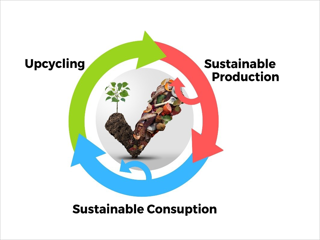Our world is experiencing many problems in terms of food wastage. Our world is full of imbalanced economies and hence, every economy has different type of human beings living. Some people who are rich enough to eat whatever they want, not caring about how much food they waste and then on the other hand there are people who are not able to arrange even a one-time meal. Seeing these situations, many organizations have developed ways through which this wastage of food can be controlled. Our farmers are growing essential food crops for our meal and now there are modern methods through which the production of crops can be increased. The graph of fertility rate of soil will also increase in definite terms if proper content of vitamins, nutrients are added in it. Keeping all this things in mind, scientists have recently discovered that fermented food waste grows useful bacteria which increasing the crop a production and maintains its growth as well. Though, there is a risk of pathogens in the crop and it makes a plant highly resistant to pathogens which helps in reducing the carbon emitted by farming.
It was analyzed that, when the fermented food waste was added to plant growing systems, beneficial microbes increased dramatically. Thus, we can grow healthier crops which are highly desired by this generation. These are referred as good bacteria as they generally produce antimicrobial compounds and metabolities that is helpful for plants to grow better and faster.
Since the plants in this experiment were grown in a greenhouse, the benefits of the waste products were preserved within a closed watering system. The plant roots received a fresh dose of the treatment each time they were watered. This is one of the main points of this research, Pagliaccia said. "To create a sustainable cycle where we save water by recycling it in a closed irrigation system and at the same time add a product from food waste that helps the crops with each watering cycle. These results were recently described in a paper published in the journal Frontier in Sustainable Food Systems.



